At dinner the other day, I was talking with a good friend about a variety of subjects from politics to science. I brought up the idea that science has a story-telling aspect about it and I wanted to show that by example in my book.
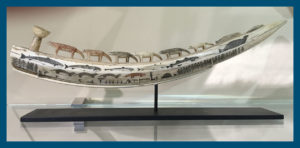
Alaskan Eskimo pipes such as this one were often made on ivory teeth of sperm whale and on whalebone. Now that’s real. Or is it?
“Really?” he said. “I don’t remember that.”
He is much more grounded in ‘facts as facts’ than I am, and seldom agrees with me when I digress into more fanciful ideas about science and the nature of truth. So, I thought he was kidding.
“Of course. The entire book is about that,” I said, feeling a bit irritated. It seemed so obvious.
He often equated a story with fiction, while I think of story as narrative: fiction or non–fiction can be stories.
He looked confused. “What do you mean? You think gene sharing is fiction?”
“Jellyfish Have Eyes is not about gene sharing,” I said.
“Jellyfish Have Eyes? No, I mean your real book, your science book. Gene Sharing and Evolution.”
I was taken aback. My real book? Jellyfish Have Eyes was as real as my science book to me. In fact, the novel felt even more real in some ways at the moment, since I’m immersed in writing rather than science now. I’m writing, for real!
And then I remembered once bantering ideas with Ed Rall, a long-time friend and eminent scientist at NIH, and the subject of writing came up. At that time I was fully engaged in running my laboratory at NIH, but I was also taking writing workshops at The Writer’s Center in Bethesda. I asked Ed if he had read a short story that I had given him. I was looking for feedback.
“Not yet. Writing is a wonderful hobby. You should have a lot of fun with it. It’s like ping-pong. But, science is your real thing, Joram.”
Now don’t get me wrong. I love playing ping-pong, which for me is a diversion. But writing as ping-pong? If my career was science, does that mean that whatever else I do is just fooling around, having fun? I let it pass then, and I let my friend’s comment on my real book go also.
But the question of real sticks in my mind. Is my novel less real than my science book because I’m less advanced as a writer than I was as a scientist when I wrote Gene Sharing and Evolution? Does level of expertise determine degree of reality? What if in the future it turned out that there were mistakes in the science book (oh god, I hope not!), but the novel ultimately made a greater impact? Would that make my novel more real than my science book? The degree of impact? The popularity?
What about other activities that are not careers, such as collecting, for example. I collect Inuit art. Is that more or less real than Jellyfish Have Eyes, or Gene Sharing and Evolution?
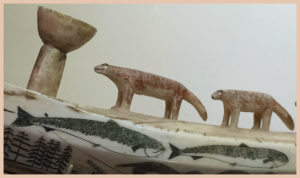
Close-up of Alaskan Eskimo Pipe
Here’s what comes to mind: scrimshaw. Wikipedia defines scrimshaw as “the name given to scrollwork, engravings, and carvings done in bone or ivory. Typically it refers to the handiwork created by whalers made from the byproducts of harvesting marine mammals.”
These handiworks were often made on ivory teeth of sperm whale and on whalebone. I imagine young men out on the seas hunting whales for the oil and other products to make a living. The sea voyages were lengthy and lonely, and the ship was away for extensive periods. In their spare time, and there must have been quite a lot of that, the whalers did scrimshaw art with sailing needles, candle black, and soot or tobacco juice on the ivory or whalebone. No doubt these handiworks were for their wives and girlfriends, or maybe just to pass the time. The scrimshaw art varied in quality and artistry with the whaler/artist, as all art does. But here’s the point: the long, dangerous trips were all about business. The purpose was to capture whales and harvest the byproducts for sale at home. If someone were to ask members on these ships what they were doing, they would say whale-hunting and working for a living.
What remains from those days? Not the whales. Sadly, many species are endangered. Not the oil or meat or whatever products the whales gave that were sold. Not the activity of whale hunting. All is extinct except the scrimshaw, the art done in leisure, the pastime. I doubt that the whalers would have mentioned scrimshaw.
Now, I ask you: What was the real part of the whaling expeditions? What counted, and when did it count?
Maybe we don’t even know what’s real when we do it. Perhaps reality changes with time. Possibly everything is as real as everything else, and no hierarchy of reality exists.
You decide what’s real for you. History will be your judge.

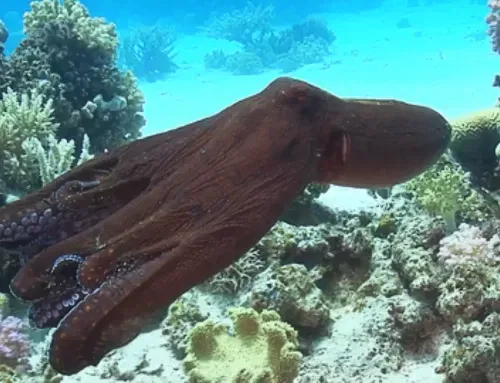

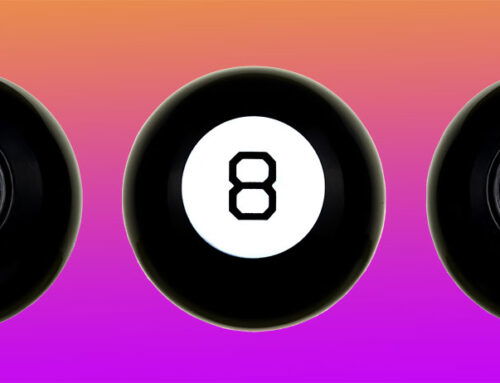
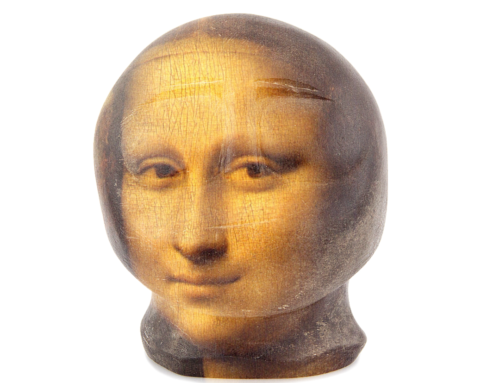

Leave A Comment